Social order & special needs
Viewpoint: Sarawak And The Federation - By Professor Michael Leigh
Submitted by newsteam on Sat, Sep 27, 2014 - 2:49 pm
Once the Sarawak Alliance had secured a clear majority of seats in the Council Negri, the next questions were who would form the cabinet, who would be the chief minister and who the governor.
Each of the successful parties had their own idea as to who should lead, as did the colonial authorities and the Malayan Alliance leaders.
Abdul Rahman Yakub was amongst those Barisan Rakyat Jati Sarawak (BARJASA) members favoured by Deputy Prime Minister Tun Abdul Razak Hussein and Ghazali Shafie. Read more »
- 13773 reads
Viewpoint: Brunei Revolt And The Indonesian ‘Konfrontasi’- By Professor Michael Leigh
Submitted by newsteam on Sat, Sep 27, 2014 - 2:41 pm
On the night of Dec 8, 1962, simultaneous attacks were launched against the government and police throughout Brunei, in Limbang and down as far as Sibuti in Sarawak.
Why such violence? In the most recent elections, the Parti Rakyat Brunei (PRB) swept all but one of the elected seats in the Brunei legislature, and expected the win would lead to legislative and executive power.
The sultan, his British advisers and the Malayan government were not happy with PRB exercising real power in Brunei. Read more »
- 13044 reads
Viewpoint: The Selling of Malaysia - By Professor Michael Leigh
Submitted by newsteam on Sat, Sep 27, 2014 - 2:27 pm
The governments in Singapore, London and Kuala Lumpur were not about to give up the idea of Greater Malaysia, merely because there was hostility and indifference in the Borneo states.
In January 1962, the state government authored and widely disseminated a paper entitled, simply, “Sarawak and Malaysia”.
It was immediately translated into each of the principal local languages. Read more »
- 8642 reads
Viewpoint: Sarawak’s Role In The Making Of Malaysia - By Professor Michael Leigh
Submitted by newsteam on Sat, Sep 27, 2014 - 2:16 pm
A TREASURE trove of the most highly classified United Kingdom records, known as “the migrated archives”, has been progressively opened to the public since April 2012.
These records document the turbulent times, the heated discussions and the set of compromises that resulted in the formation of Malaysia on Sept 16, 1963.
From these documents, it is clear that the creation of Malaysia was no foregone conclusion, and whether Sarawak would form the new nation was uncertain right up to the last minute. Read more »
- 8767 reads
Articles On Malay Privileges, Islam Not Above Constitutional Liberties, Zahid Told
Submitted by newsteam on Sat, Sep 27, 2014 - 2:11 pm
Constitutional provisions on the Malays, the Malay rulers, Islam and the national language are not superior to those governing the rights of other citizens, several lawyers said in rebuttal to Umno’s Datuk Seri Ahmad Zahid Hamidi.
The legal experts reminded the home minister that while aspects of the “social contract” are embedded in the Federal Constitution, there exist other equally important elements in the country’s highest law guaranteeing the rights of non-Muslim, non-Malay Malaysians, such as fundamental liberties and the guarantee of citizenship. Read more »
- 13436 reads
More Pain Than Gain To Be Part Of Malaysia - Says Sabah, Sarawak Leaders
Submitted by newsteam on Sat, Sep 27, 2014 - 2:09 pm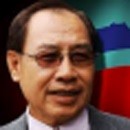
The Federation of Malaysia is meaningless if Sabah continues to be "occupied" by "Malayan" government officers and federal agencies, said Borneo Heritage Foundation chairperson (BHF) Jeffrey Kitingan.
"The over-presence and overbearing dominance of the federal ministries, departments and agencies showed that Sabah is just a 'colony' of Malaya in the name of the federal government," he said in his Malaysia Day message at the Batu Sumpah, Keningau. Read more »
- 6778 reads
Finally, A Minister Disagrees With Sedition Charge On University Malaya Professor
Submitted by newsteam on Sun, Sep 14, 2014 - 11:14 am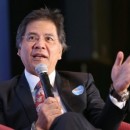
Minister Datuk Seri Idris Jala criticised today the use of the controversial Sedition Act 1948 on Azmi Sharom, nearly a fortnight after the University of Malaya (UM) law lecturer was charged.
The minister in the Prime Minister’s Department in charge of government efficiency broke away from the Barisan Nasional (BN) government that has so far defended the use of the colonial-era law on dissidents, saying on Twitter that academic freedom is vital to the pursuit of knowledge. Read more »
- 8549 reads
Activists Want RCI On Malaysia
Submitted by newsteam on Sat, Sep 13, 2014 - 1:06 pm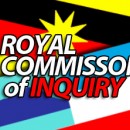
Rights activists behind the Borneo’s Plight in Malaysia Foundation (BoPIM), a UK-based human rights NGO, sees a Royal Commission of Inquiry (RCI) on Malaysia as perhaps the best way forward in Borneo after over 50 years of Sabah and Sarawak in Federation with the peninsula.
“We need to institutionalise the debate through a mechanism and RCI would be the ideal approach under the circumstances,” said BoPiM President Daniel John Jambun in a telephone call. Read more »
- 10706 reads
Sarawakians ‘Confused’ Over Merdeka Day
Submitted by newsteam on Sat, Sep 13, 2014 - 1:04 pm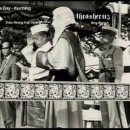
Sarawakians on both sides of the divide are unanimous that Aug 31, the common day for Sabah and the peninsula, is not their Hari Merdeka (Independence Day).
Otherwise, they appear divided on what should be seen as their independence day.
The Sarawak Government, for the first time in 50 years, recognised July 22 as Sarawak’s Independence Day which then Chief Minister Abdul Taib Mahmud referred to as Liberation Day. Read more »
- 6787 reads
Malaysian Bar: Sedition Act Panders To Extremists
Submitted by newsteam on Sat, Sep 13, 2014 - 1:01 pm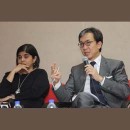
The Sedition Act 1948 was never intended to create national harmony but it encourages extremism instead, Malaysian Bar president Christopher Leong said last night.
He said the colonial-era law panders to extremists and perpetuates disunity as it is wielded whenever others claim to be insulted or disrespected.
“The Sedition Act is the antithesis of democracy, rule of law and justice,” he said at the official launch of the #MansuhAktaHasutan campaign by the Bar Council’s National Young Lawyers Committee (NYLC) last night to repeal the Sedition Act. Read more »
- 7262 reads

